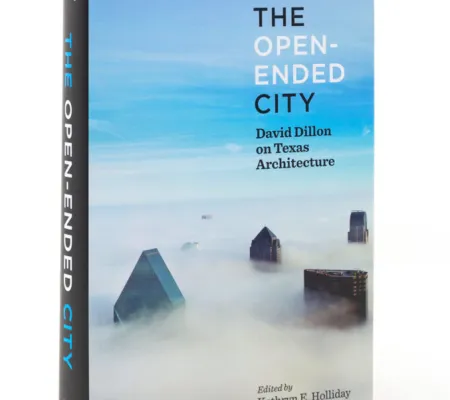The University of Texas Press has recently published a new book in its architecture series, The Open-Ended City: David Dillon on Texas Architecture, edited by Art History alumna Kathryn E. Holliday (MA, 1994). Currently, Holliday serves as the Associate Professor of Architectural History at UT Arlington, where she directs the David Dillon Center for Texas Architecture. Through 60 key articles, Holliday chronicles the work of Dallas architecture critic David Dillion from the early 1980s to the early 2000s as the way that cities in Texas and beyond were conceived, planned, and developed radically transformed.
Architecture critic for Curbed and author of Writing about Architecture: Mastering the Language of Buildings and Cities, Alexandra Lange, wrote in a review, "David Dillon began writing about Texas architecture at one of American architecture's lowest moments, the 1980s. 'Why is Dallas architecture so bad?' he asked.
"Over the next three decades, as this vibrant collection shows, he answered his question not by picking on individual buildings but by picking apart how cities, regions, and even McMansions are made. With steady optimism and a broad, national perspective, he helped frame debates about public and private space that continue to this day. Dillon's clarity, humor, and doggedness are a model for the contemporary critic.”
"Holliday discusses how Dillon connected culture, commerce, history, and public life in ways that few columnists and reporters ever get the opportunity to do," reads the book description from UT Press. "The articles she includes touch on major themes that animated Dillon's writing: downtown redevelopment, suburban sprawl, arts and culture, historic preservation, and the necessity of aesthetic quality in architecture as a baseline for thriving communities. While the specifics of these articles will resonate with those who care about Dallas, Fort Worth, and other Texas cities, they are also deeply relevant to all architects, urbanists, and citizens who engage in the public life and planning of cities. As a collection, The Open-Ended City persuasively demonstrates how a discerning critic helped to shape a landmark city by shaping the conversation about its architecture."
Holliday has given speaking engagements for The Open-Ended City across Texas and recently at the Texas Book Festival.


